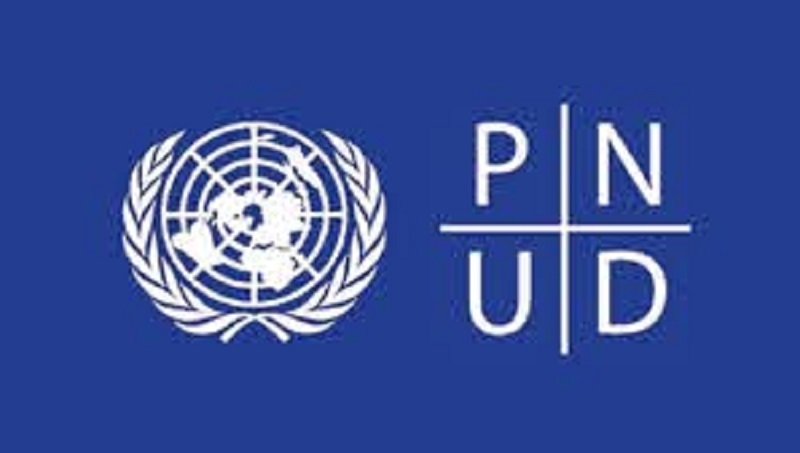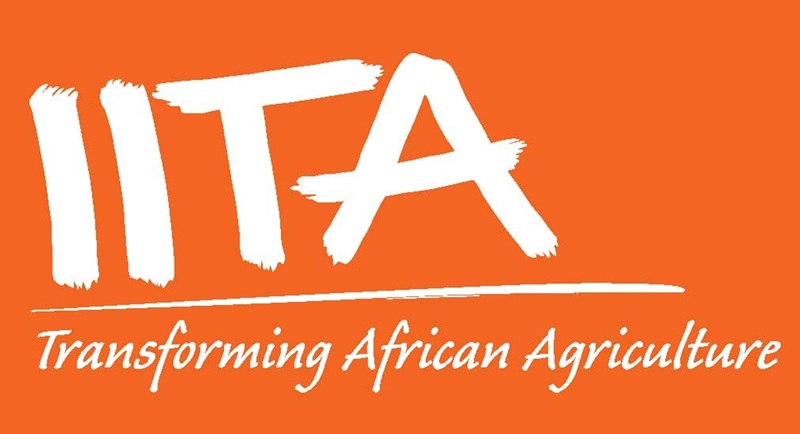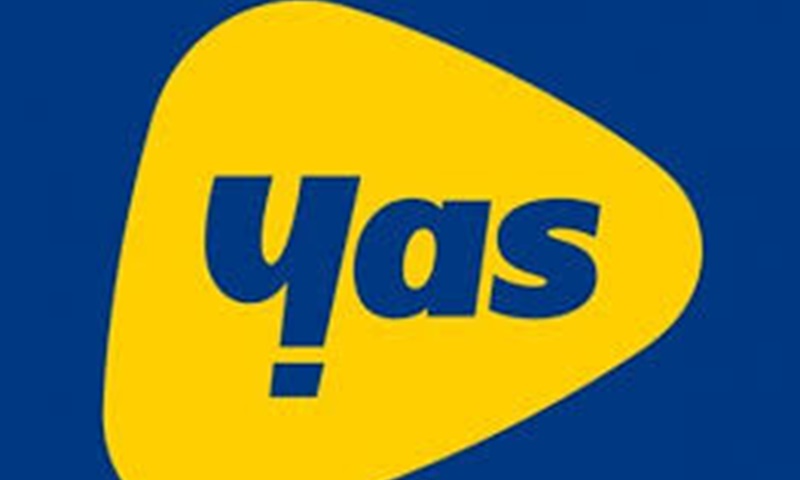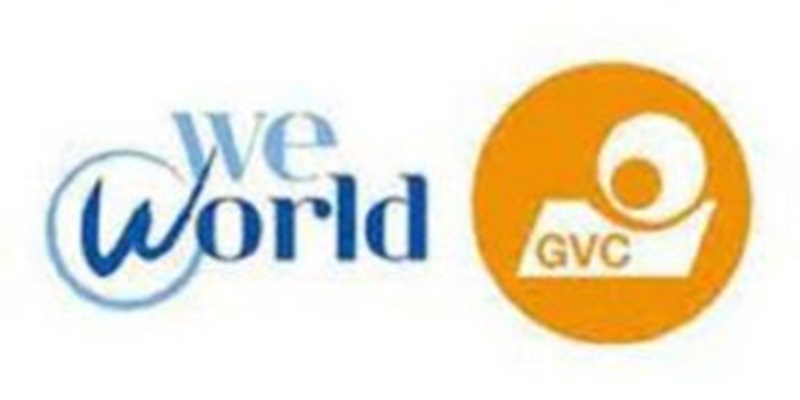Le PNUD s’engage à recruter un personnel divers en termes de genre, de nationalité et de culture. Nous encourageons de même les personnes issues des minorités ethniques, des communautés autochtones ou handicapées à postuler. Toutes les candidatures seront traitées dans la plus stricte confidentialité.
Le PNUD ne tolère pas l’exploitation et / ou les atteintes sexuelles, ni aucune forme de harcèlement, y compris le harcèlement sexuel, et / ou toutes formes de discrimination. Tous/tes les candidats/tes sélectectionnés /ées devront ainsi se soumettre à de rigoureuses vérifications relatives aux références fournies ainsi qu’à leurs antécédents.
Placé (e) sous la supervision générale du Spécialiste des opérations (OM) et la supervision directe du Chargé d’Administration, le commis à l’Administration apporte un soutien à l’exécution des tâches administratives relevant de l’Unité d’Administration générale.
Le Commis à l’Administration va promouvoir une approche orientée vers la satisfaction de la clientèle, à travers la délivrance des services rapides et de qualité délivrée juste à temps.
1) Contribue au recouvrement des coûts et à la gestion du Projet Cost Recovery dans le but d’atteindre les résultats suivants :
• Appuyer les Opérations dans la mise en œuvre de sa politique en matière de recouvrement et de réduction des coûts ;
• En tant que General Users dans ATLAS, initier ou créer des réquisitions (Projets du management, projet Cost Recovery (00032786) et autres à partir des requêtes extérieures au Bureau
2) Apporte un appui dans le suivi des paiements
• Tenir à jour le registre de liquidation (paiement) de tous les engagements contractés sur les fonds du management ;
3) Assure la gestion des fournitures du bureau
• Assurer la gestion centralisée des fournitures de bureau et mettre en place un système de suivi et de gestion des stocks ;
• Participer à la réception physique des fournitures du bureau en s’assurant de la conformité de la livraison par rapport à la commande, tant en quantité qu’en qualité des biens livrés ;
• Produire mensuellement les rapports sur la consommation des stocks dans le cadre de la sensibilisation à l’écologisation du Bureau (consommation des papiers, etc.) et à la diminution des coûts de fonctionnement du bureau.
4) Appui un appui administratif dans les domaines suivants
• Appuyer le Travel Unit dans la gestion des processus de réservation de vol, de collecte d’informations et de suivi des engagements du bureau pays vis-à-vis des agences de voyages
• Superviser les ravitaillements en carburant des véhicules du Bureau et appliquer le système de gestion du carburant ;
• Réaliser les travaux de reprographie du Bureau dans l’optique de recouvrement des coûts ;
• Participer aux inventaires périodiques des stocks et d’actifs capitalisés du Bureau ;
• Contribuer activement à la préparation des certifications trimestrielles des stocks par la production des données fiables et complètes sur les entrées, les sorties des stocks et la valorisation FIFO du stock final ;
• Produire des rapports mensuels ou périodiques sur la consommation des stocks, le mouvement des assets etc
• Apporter un appui dans la distribution des dossiers de travail au sein de l’Unité d’Administration générale et à la collecte des factures proforma;
- Compétences essentiellesObtenir des résultats :
NIVEAU 1 : Planifier et contrôler son propre travail, prêter attention aux détails, fournir un travail de qualité dans les délais impartis.Penser de façon innovante :
NIVEAU 1 : Ouvert aux idées créatives et aux risques connus, pragmatique dans la résolution des problèmes, apporte des améliorations.Apprendre continuellement
NIVEAU 1 : Ouverture d’esprit et curiosité, partage ses connaissances, apprend de ses erreurs, demande du feedback.S’adapter avec agilité
NIVEAU 1 : S’adapte au changement, gère de manière constructive l’ambiguïté/l’incertitude, est flexible.Agir avec détermination
NIVEAU 1 : Fait preuve de dynamisme et de motivation, est capable d’agir avec calme face à l’adversité, est confiant.S’engager et s’associer
NIVEAU 1 : Fait preuve de compassion et de compréhension envers les autres, établit des relations positives.Favoriser la diversité et l’inclusion
NIVEAU 1 : Apprécier et respecter les différences, être conscient des préjugés inconscients, faire face à la discrimination. - Compétences transversales et techniques Nom du domaine thématique et DéfinitionGestion des affaires
Satisfaction de la clientèle/Gestion des clients:
Capacité à réagir en temps utile et de manière appropriée, avec un sentiment d’urgence, à fournir des solutions cohérentes et à fournir des résultats et/ou des solutions de qualité en temps utile pour satisfaire et comprendre les besoins réels des clients.
Contribuer à l’élaboration de la stratégie de service à la clientèle.
Rechercher des moyens d’ajouter de la valeur au-delà des demandes immédiates des clients.
Capacité à anticiper les besoins et les préoccupations à venir des clients.Administration et opérations
Gestion du registre et de la correspondance:
Capacité à collecter, enregistrer, maintenir et distribuer le courrier et la pochette du PNUD ; capacité à gérer les archives.
- Avoir au minimum un diplôme d’Etat (Baccalauréat)
- Minimum 4 ans d’expérience professionnelle dans le domaine d’administration.
- Avoir de bonnes connaissances informatiques en Word, Excel, Access
- Une expérience dans le domaine de la gestion, des finances et la logistique serait un atout.
Les candidatures féminines sont fortement encouragées.
Informations importantes pour les candidats
Tous les postes dans les catégories GS sont soumis à un recrutement local.
Informations pour les candidats concernant le « Roster » du PNUD
Note : Le PNUD se réserve le droit de sélectionner un ou plusieurs candidats de cet avis de vacance. Nous pouvons également conserver les candidatures et prendre en considération les candidats postulant à ce poste pour d’autres postes similaires au sein du PNUD, au même niveau hiérarchique et avec une description de poste, une expérience et des exigences éducatives similaires.
Diversité de la main-d’œuvre
Le PNUD s’engage à assurer la diversité au sein de son personnel et encourage tous les candidats qualifiés, indépendamment de leur sexe, de leur nationalité, de leur handicap, de leur orientation sexuelle, de leur culture, de leur religion et de leur origine ethnique, à postuler. Toutes les candidatures seront traitées dans la plus stricte confidentialité. Nous encourageons vivement les candidatures féminines.
Scam warning
Les Nations Unies ne facturent aucun frais de candidature, de traitement, de formation, d’entretien, de test ou autre dans le cadre du processus de candidature ou de recrutement. Si vous recevez une sollicitation pour le paiement d’un droit, veuillez ne pas en tenir compte. En outre, veuillez noter que les emblèmes, logos, noms et adresses sont facilement copiés et reproduits. Il vous est donc conseillé d’être particulièrement prudent lorsque vous soumettez des informations personnelles sur le web.
Poste 2 : consultant
Local consultant for the midterm review (MTR) of the project “Strengthening the resilience of vulnerable coastal areas and communities to climate change in Guinea Bissau”
Background |
|
| This is the Terms of Reference (TOR) for the UNDP-GEF Midterm Review (MTR) of the full-sized project titled “Strengthening the resilience of vulnerable coastal areas and communities to climate change in Guinea Bissau” implemented through the Ministry of Environment and Sustainable Development (MADS) Guinea Bissau (Government). The project started on the 3rd of May 2019 and is in its third year of implementation. The MTR process must follow the guidance outlined in the document Guidance For Conducting Midterm Reviews of UNDP-Supported, GEF-Financed Projects (http://web.undp.org/evaluation/guidance.shtml#gef).
The project was designed to support Guinea Bissau in sustainably addressing urgent and immediate barriers linked to policy, institutional, individual and financial aspects of its current coastal zone management framework, as well as to improve stakeholders’ overall knowledge and capacity related to effective climate risk management and climate resilient development in its coastal zone. Its objective is to strengthen the adaptive capacity and climate resilience of vulnerable coastal communities to climate risks in Guinea-Bissau. The project has four main components, each with a corresponding outcome thus: Component 1: Governance frameworks for climate risk management in the coastal zone which focuses on supporting the establishment of an enabling political, institutional and administrative environment for advancing the management of the climate risk in the coastal zone.
Component 2: Coastal protection investments which aims to finance additional investments in hard and soft coastal protection measures to help maintain critical economic and natural infrastructures in the face of sea level rise and coastal degradation. This includes interventions in the agricultural and fisheries sectors, as well as those related to nature protection and ecosystem restoration.
Component 3: Diffusion of technologies to strengthen coastal communities’ climate resilience: this entails contributing to strengthen climatic resilience through livelihood options for the coastal communities with emphasis on the most vulnerable groups such as women and youths.
Compontent 4: Monitoring and evaluation: This includes the development and implementation of long-term monitoring and evaluation schemes for the entire project duration to ensure the intended project objectives are being met.
The project interventions are carried out in various localities grouped in the following zones: the “Bolama-Bijagós Archipelago” zone (1), the “Varela-Cacheu” zone (2), the “Mansoa-Buba-Cufada” zone (3a) and the South zone (3b). The planned duration of the project is five years. i.e., 3rd May 2019 to 3rd May 2024. The project is implemented following UNDP’s national implementation modality, according to the Standard Basic Assistance Agreement between UNDP and the Government of Guinea-Bissau, and the Country Program. The Implementing Partner is the Ministry of Environment and Sustainable Development (MADS). The Implementing Partner works closely with: the Coastal Planning Office (GPC), the Directorate for Rural Engineering (Engenharia Rural), the Directorate for Agricultural and Rural Development (DGAg), the Institute of Biodiversity and Protected Areas (IBAP) and the National Institute of Research and Studies (INEP) as responsible parties, tasked with implementing specific activities assigned to them and ensuring the government’s contribution to the project and working with the project management team and Project Board to achieve the intended results. This MTR will be conducted by a team of 2 consultants (hereby referred to as the MTR team) made up of an international consultant who will act as MTR team leader and a local consultant. This TOR is developed specifically for acquiring the services of a local consultant for the MTR.
The MTR will assess progress towards the achievement of the project objectives and outcomes as specified in the Project Document and assess early signs of project success or failure with the goal of identifying the necessary changes to be made in order to set the project on-track to achieve its intended results. The MTR will also review the project’s strategy and its risks to sustainability. It will focus on the effectiveness, efficiency, and timeliness of project implementation; will highlight issues requiring decisions and actions; and will present initial lessons learned about project design, implementation, and management. The findings of this review will be incorporated as recommendations for enhanced implementation during the final half of the project’s term The MTR report will be available in English and will be cleared by the UNDP Country Office and the UNDP-GEF Regional Technical Adviser and approved by the Project Board. The report will also be uploaded on UNDP corporate systems, in particular the UNDP Evaluation Office’s Evaluation Resource Center (ERC).
|
|
Duties and Responsibilities |
|
| The consultant as part of the MTR team will review all relevant sources of information including documents prepared during the preparation phase (i.e. PIF, UNDP Initiation Plan, UNDP Social and Environmental Screening Procedure (SESP)), the Project Document, project reports including Annual Project Review/PIRs, project budget revisions, national strategic and legal documents, and any other materials that the team considers useful for this evidence-based review. Conduct a review of the baseline GEF focal area Core Indicators/Tracking Tools submitted to the GEF at CEO endorsement, and the midterm GEF focal area Core Indicators/Tracking Tools that must be completed before the MTR field mission begins. The consultant is expected to follow a collaborative and participatory approach ensuring close engagement with the Project Team, government counterparts (the GEF Operational Focal Point), the UNDP Country Office(s), the Nature, Climate and Energy (NCE) Regional Technical Advisor, direct beneficiaries, and other key stakeholders. Engagement of stakeholders is vital to a successful MTR. Stakeholder involvement should include interviews with stakeholders who have project responsibilities, including but not limited to; relevant government ministries, partner NGOs/CBOs, executing agencies, senior officials and task team/ component leaders, key experts and consultants in the subject area, Project Board, project stakeholders, local government and CSOs, etc. Additionally, the MTR team is expected to conduct field missions to the project zone #1, zone #2 and zone #3 listed above.
The specific design and methodology for the MTR should emerge from consultations between the MTR team and the above-mentioned parties regarding what is appropriate and feasible for meeting the MTR purpose and objectives and answering the evaluation questions, given limitations of budget, time and data. The consultant must, however, use gender-responsive methodologies and tools and ensure that gender equality and women’s empowerment, as well as other cross-cutting issues and SDGs are incorporated into the MTR report. The consultant as part of the MTR team will assess the following four categories of project progress. See the Guidance For Conducting Midterm Reviews of UNDP-Supported, GEF-Financed Projects for extended descriptions.
The consultant together with the MTR team leader will review all relevant sources of information including documents prepared during the preparation phase of the project, the Project Document (ProDoc), various project reports and any other materials that the TE team considers useful for this evidence-based evaluation. The consultant will review the baseline and midterm GEF focal area Core Indicators/Tracking Tools submitted to the GEF at the Chief Executive Officer (CEO) endorsement and midterm stages and the terminal Core Indicators/Tracking Tools that must be completed before the TE field mission begins. Expected outputs and deliverables The consultant, led by and together with the senior international consultant shall prepare and submit:
– Final MTR Report* + Audit Trail within 1 week of receiving comments on draft report *The final MTR report must be in English. All final TE reports will be quality assessed by the UNDP Independent Evaluation Office (IEO). Details of the IEO’s quality assessment of decentralized evaluations can be found in Section 6 of the UNDP Evaluation Guidelines.
|
|
Competencies |
|
|
|
Required Skills and Experience |
|
|
Academic qualifications:
Years of experience:
Language:
Guidelines for application: Required documents:
Evaluation: Individual consultants will be evaluated based on the following methodologies:
Only candidates obtaining a minimum of 70 points would be considered for the Financial Evaluation. Evaluation criteria:
|





